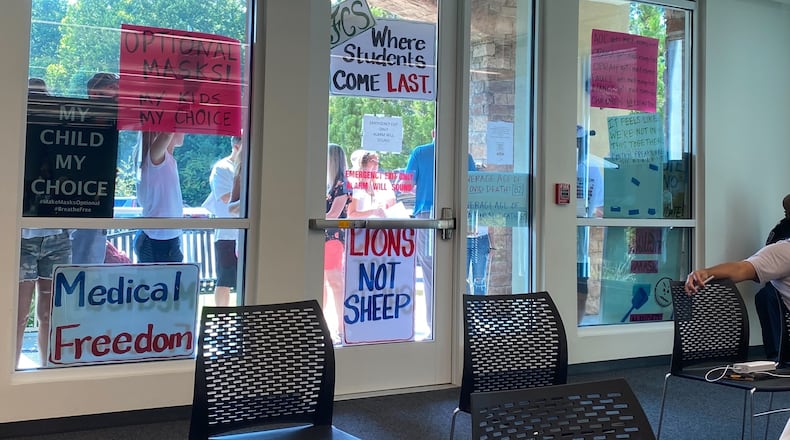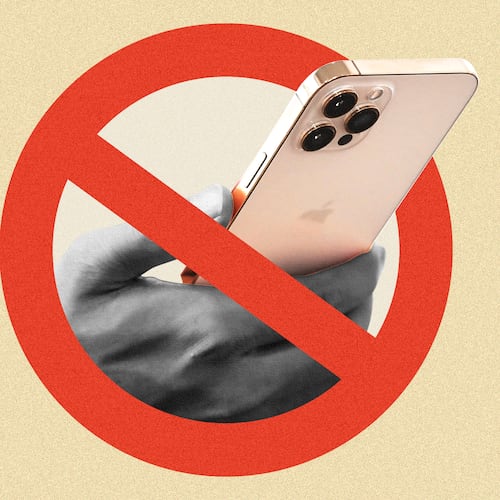Fulton County Schools’ decision to once again require masks when in-person learning resumes Monday has given fresh relevance to an ongoing legal fight over the COVID-19 safety precaution.
Parents sued the district last year seeking to overturn Fulton’s mask mandate, which has been intermittently imposed since the start of the school year based on COVID-19 data. They are appealing an October ruling by a judge who rejected their request for a temporary restraining order.
The district defended its mask stance over the holiday break in a 43-page brief it filed in the Georgia Court of Appeals case.
“Courts across the country have consistently upheld the ability of school systems to make decisions on whether to have a mask mandate, and we expect the Court of Appeals to do the same here,” said district spokesman Brian Noyes in a statement this week to The Atlanta Journal-Constitution.
Atlanta attorney Ray S. Smith III, who represents the 11 families suing the district, said in an email that his clients “have suffered very real harm as a result of this ill-guided and unlawful policy, and they continue to be harmed as long as the school insists on mandating masks.”
He wrote: “We will continue to fight for our plaintiffs until such time as they are free to breathe and speak normally in their classrooms.”
Fulton moved classes online this week because of a surge in COVID-19 cases over the holiday break.
The district plans to resume in-person learning Monday, though officials said some schools could remain online only depending on COVID-19 case counts. Updates are expected on Friday.
Masks will be required in all buildings through Jan. 21.
The district’s mask policy shifted several times since early August, when officials announced that masks would be required in areas with high COVID-19 case counts.
The mandate remained in place until late October, when infections dropped enough for masks to be removed in some schools.
Masks became optional in all schools in early November, when the district began relying on school-level case counts instead of city-level data to determine if masks were necessary. Officials also announced that masks would be optional throughout the district 30 days after younger children became eligible for a vaccine.
For the last few weeks of the first semester, masks were only required in schools on a case-by-case basis.
Attorneys who brought the lawsuit predicted that Fulton could once again require masks, stating that “any true freedom is illusory.”
“The threat of renewed mask requirements will linger until the courts declare that the mandate is unconstitutional,” they wrote in their appeal.
Smith said he plans to submit his reply to the district’s latest court filing in the next few weeks. He pointed to what he said was “encouraging news” for his clients — a federal judge’s recent ruling in another case that temporarily stopped a mandate requiring Head Start students to wear masks.
Noyes said that in the Fulton case, the first judge got it right when he denied the parents’ request to block the mask mandate.
“The plaintiffs did not show that the mask policy posed a risk of harm and cannot present a compelling case for why they are likely to win on the merits of their claims,” he said.
About the Author
Keep Reading
The Latest
Featured


